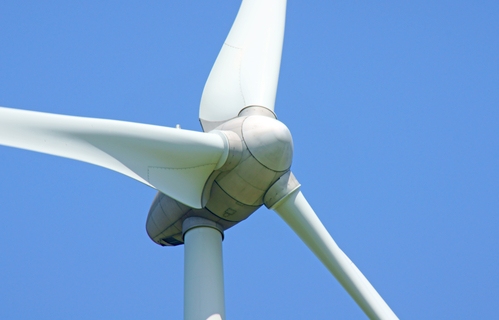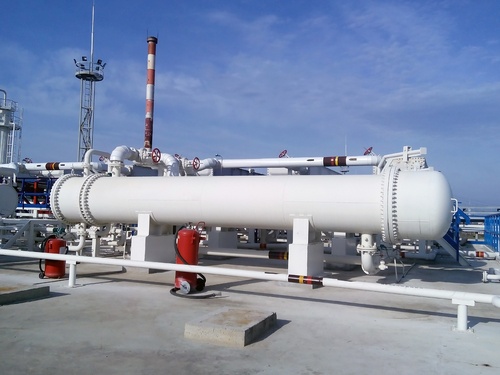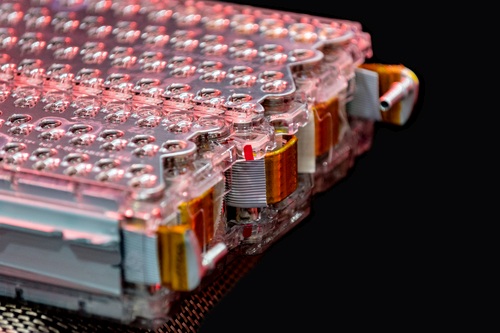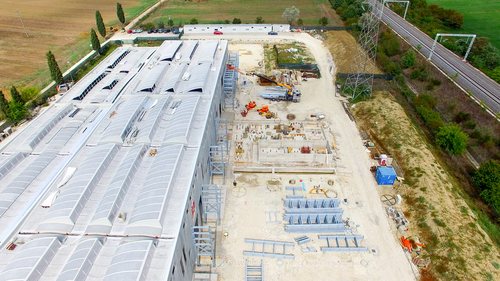South Korea still heavily dependent on wind turbine imports
Back in February 2021, South Korea declared that it would become one of the world’s top five players in offshore wind turbines. However, it was recently revealed that the country continues to import much of the technology or turbines and South Korean companies are finding it difficult to compete with imports. According to experts, this is due to the government’s hurried implementation of energy and environmental targets instead of proceeding in steps. According to figures from the Ministry of Trade, Industry and Energy, the share of domestically produced wind turbines fell by 12 per cent to 58.4 per cent from a figure of 70.4 per cent in 2016, while the market share of imported turbines rose from 29.6 per cent to 87.8 per cent at present during the same period. Many components and production equipment required for wind turbine manufacturing must undergo KC certification or KCs certification to be approved in Korea.

In particular, the market share of key components such as wind turbine blades and generators from domestic production was only 34 per cent in the first quarter of 2021, while for complete turbines around half of all components come from South Korea. In the period from 2016 to 2019, the number of companies from South Korea operating in the wind turbine sector also fell from 28 to 18, while the number of employees decreased from 1,718 to 1,545. Instead, many companies decided to move abroad, which is also illustrated by the figures for sales generated abroad. For example, from 2016 to 2019, this figure more than doubled to KRW 811.8 billion from KRW 348.9 billion.
Currently, 74 per cent of South Korea’s wind turbine technology is in the hands of leading industrial companies. For suppliers, the figure is between 60 and 90 per cent. These companies are already capable of producing wind turbines with a capacity of 8 MW and are working on 10 MW turbines. Local companies, on the other hand, produce 5 MW turbines and are developing 8 MW turbines. Companies from the European Union and China have been able to reduce their turbine prices for offshore wind turbines by KRW 200 million (USD 166,300) per MW in the past two years by further developing the technology. On the other hand, prices from South Korean manufacturers remained almost unchanged over the identical period.
South Korea is considered one of the most important and innovative industrial nations in the world. In order to gain market access to this highly technological country, products imported into South Korea must be tested and certified. The KC mark or certificate is roughly equivalent to the European CE mark and applies to 730 different products. MPR International GmbH has solid experience in Korea certification and competent local partners. We will be pleased to advise you without obligation about the scope and procedure of a Korea certification.
Feel free to contact us any time if you need assistance or have any questions regarding Korean certifications like KC, KC EMC, KCs, KCs for explosion safety products or KGS factory registration.
Tel. Europe: +49-69-271 37 69 261
Tel. US: +1 773 654-2673
Email: info@korea-certification.com
Urgent questions?
Please do not hesitate to contact us via chat. You will find the chat window at the bottom right of each page (if this is not visible, please check your browser settings).
For more information you can download our free brochure “Korea Certification Made Easy – The Booklet“.
Gas supplier KOGAS plans transformation into hydrogen technology provider
The Korea Gas Corp. (KOGAS) plans to transform itself from a natural gas supplier into a hydrogen technology provider. The state-owned company made the announcement at a press conference on 27 September 2021 in Daegu, South Korea. According to the president of KOGAS, Chae Hee-bong, about 2.49 million US dollars profit will be generated in the new business field with hydrogen technology by 2030. KOGAS will be transformed from a simple natural gas supplier to a showcase company for hydrogen in South Korea, Hee-bong said at the event. KOGAS plans to produce around 830,000 tonnes of green hydrogen abroad and import it to South Korea by 2030. To this end, green hydrogen will be imported from Australia, Russia and Southeast Asia from 2025. In addition, the installation of 152 hydrogen fuel pumps is planned by 2030. Equipment and machinery needed for technical hydrogen processes and production requires KC certification, KCs certification or KGS certification for many parts in order to be imported to Korea and used in the Korean market.

An existing liquefied gas plant in Pyeongtaek, Gyeonggi Province, will be converted into the first climate-neutral hydrogen production plant in South Korea, according to the company. Furthermore, KOGAS is promoting the expansion of renewable energies through wind power plants on Jeju Island. KOGAS has decided to actively develop new business areas beyond the liquefied natural gas business. For example, the refrigeration business with liquefied gas cooling is to be expanded in the “Busan New Port” and in Vietnam. Recently, the Supervisory Board also decided to expand the refrigeration plants in the port “Incheon New Port”. In addition, the company wants to become more involved in new tenders for gas-fired power plants for electricity generation in Vietnam, the Dominican Republic, Malaysia and Indonesia.
If you need assistance or have any questions regarding Korean certifications like KC, KC EMC, KCs, KCs for explosion safety products or KGS factory registration, feel free to contact us any time. MPR International GmbH has solid experience in Korea certification and competent local partners. We will be pleased to advise you without obligation about the scope and procedure of a Korea certification.
Tel. Europe: +49-69-271 37 69 261
Tel. US: +1 773 654-2673
Email: info@korea-certification.com
Urgent questions?
Please do not hesitate to contact us via chat. You will find the chat window at the bottom right of each page (if this is not visible, please check your browser settings).
For more information you can download our free brochure “Korea Certification Made Easy – The Booklet“.
LG and Samsung develop EV batteries without cobalt
South Korean battery manufacturers LG Energy Solution and Samsung SDI are working on EV batteries without cobalt, according to Business Korea. Competitor SK On, on the other hand, is considering producing iron-phosphate batteries. In this context, Tesla recently announced that it would equip its affordable models with iron-phosphate batteries in the future. Which means, in turn, that more batteries from Chinese manufacturers will be installed for this case. In a statement, LG Energy Solution said that although iron-phosphate batteries are cheap, they have disadvantages in terms of weight, energy density and range. Instead, it is working on alternative low-cost batteries that do not require expensive materials such as cobalt. Materials and production equipment for batteries are among the product categories that largely require KC certification for import and market approval for Korea.

Currently, iron-phosphate batteries for EVs are mainly produced by Chinese companies such as CATL and BYD. South Korean manufacturers, on the other hand, rely on the relatively expensive nickel-cobalt-manganese batteries. Samsung SDI said in a statement that it would not develop iron-phosphate batteries and would instead look into other technologies that do not require cobalt, like LG Energy Solution. In contrast, SK On announced in early October that it may manufacture iron-phosphate batteries.
South Korea is considered one of the most important and innovative industrial nations in the world. To gain market access to this highly technological country, products imported into South Korea must be tested and certified. The KC mark or certificate is roughly equivalent to the European CE mark and applies to 730 different products. MPR International GmbH has solid experience in Korea certification and competent local partners. We will be pleased to advise you without obligation about the scope and procedure of a Korea certification.
If you need assistance or have any questions regarding Korean certifications like KC, KC EMC, KCs or KCs for explosion safety products, feel free to contact us any time.
Tel.: +49-69-2713769259
Email: info@korea-certification.com
Urgent questions?
Please do not hesitate to contact us via chat. You will find the chat window at the bottom right of each page (if this is not visible, please check your browser settings).
For more information you can download our free brochure “Korea Certification Made Easy – The Booklet“.
Hyundai Mobis invests 1.09 billion US dollars in further fuel cell factories
Hyundai Mobis is investing the sum of 1.09 billion US dollars in further production facilities in Incheon and Ulsan for the manufacture of fuel cells. On 7 October 2021, Hyundai Mobis broke ground for a new factory in the High-Tech Industrial Complex of Cheongna International City in Incheon. The two plants in Incheon and Ulsan are expected to produce 100,000 fuel cells annually. Construction is expected to be completed in the second half of 2022. Series production of fuel cells is scheduled to start in the second half of 2023. The plant in Incheon is responsible for the production of the actual fuel cells and sends them to the plant in Ulsan, where the assembly of the modules takes place. Components and production parts for such fuel cells require KC certification to a large extent in order to be approved on the Korean market and to be imported into Korea.

Once the two new plants are completed, Hyundai Mobis will have a total of three fuel cell production facilities in South Korea. The company began the world’s first integrated fuel cell production at its Chungju, South Korea facility in 2018. Currently, the capacity of the plant there is 23,000 fuel cell modules annually. Once the Incheon and Ulsan sites come on stream, Hyundai Mobis’ annual capacity will grow to 123,000 modules. This would make Hyundai Mobis the world’s largest producer of fuel cells in terms of production capacity.
South Korea is considered one of the most important and innovative industrial nations in the world. In order to gain market access to this highly technological country, products imported into South Korea must be tested and certified. The KC mark or certificate is roughly equivalent to the European CE mark and applies to 730 different products. MPR International GmbH has solid experience in Korea certification and competent local partners. We will be pleased to advise you without obligation about the scope and procedure of a Korea certification.
If you need assistance or have any questions regarding Korean certifications like KC, KC EMC, KCs or KCs for explosion safety products, feel free to contact us any time.
Tel.: +49-69-2713769259
Email: info@korea-certification.com
Urgent questions?
Please do not hesitate to contact us via chat. You will find the chat window at the bottom right of each page (if this is not visible, please check your browser settings).
For more information you can download our free brochure “Korea Certification Made Easy – The Booklet“.



